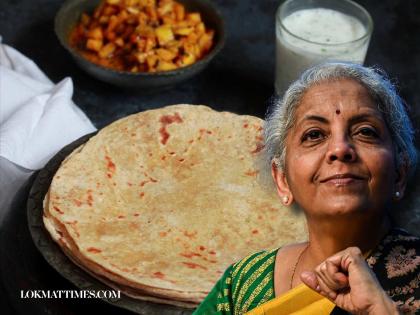GST Council Meeting: Middle-Class Households Poised to Gain Big from Tax Relief
By Lokmat Times Desk | Updated: September 3, 2025 11:45 IST2025-09-03T11:44:23+5:302025-09-03T11:45:29+5:30
The next generation GST reforms would 'absolutely' set an economy open and transparent with further reduction in compliance burden ...

GST Council Meeting: Middle-Class Households Poised to Gain Big from Tax Relief
The next generation GST reforms would 'absolutely' set an economy open and transparent with further reduction in compliance burden and benefiting small businesses, Union Finance Minister Nirmala Sitharaman said on Tuesday. She was speaking at the 120th Foundation Day celebrations of Tamil Nadu-based City Union Bank, where President Droupadi Murmu was the chief guest.
The GST Council is expected to make a final decision during its two-day meeting this week regarding the Centre's proposal to reduce GST rates on over 150 items as part of a comprehensive rate adjustment. The proposals to move various items from the 12 per cent and 18 per cent GST slabs to the 5 per cent slab or to the nil GST category aim to reduce the tax burden for households and boost spending.
GST Council plans to overhaul the rate structure, replacing the current four-rate structure with a two-rate structure. A significant part of the plan includes expanding the nil GST category by including commonly consumed food items like loose paneer, khakhra, pizza bread, chapati, and roti, which currently face GST rates of 5 per cent to 18 per cent, according to multiple reports.
Ready-to-eat foods such as paratha and parotta, currently taxed at 18 per cent, are also considered for GST exemption. Items including butter, condensed milk, jams, nuts, namkeens, mushrooms, and dates may see a reduction in the tax rate from 12 per cent to 5 per cent. The Centre has proposed reducing the GST on various confectionery, popular packaged snacks, breakfast items and dessert items from 18 per cent to 5 per cent. The items reportedly include cocoa chocolates, pastries, ice cream, and breakfast cereals such as cereal flakes, primarily used by urban consumers and younger demographics. It is also expected to lower the tax on entry-level passenger vehicles and two-wheelers to 18 per cent, making them more affordable ahead of Diwali. Currently, all passenger vehicles based on combustion engines are subject to a GST of 28 per cent plus a compensation cess of 1 per cent to 22 per cent based on engine capacity, length, and body type.
Open in app